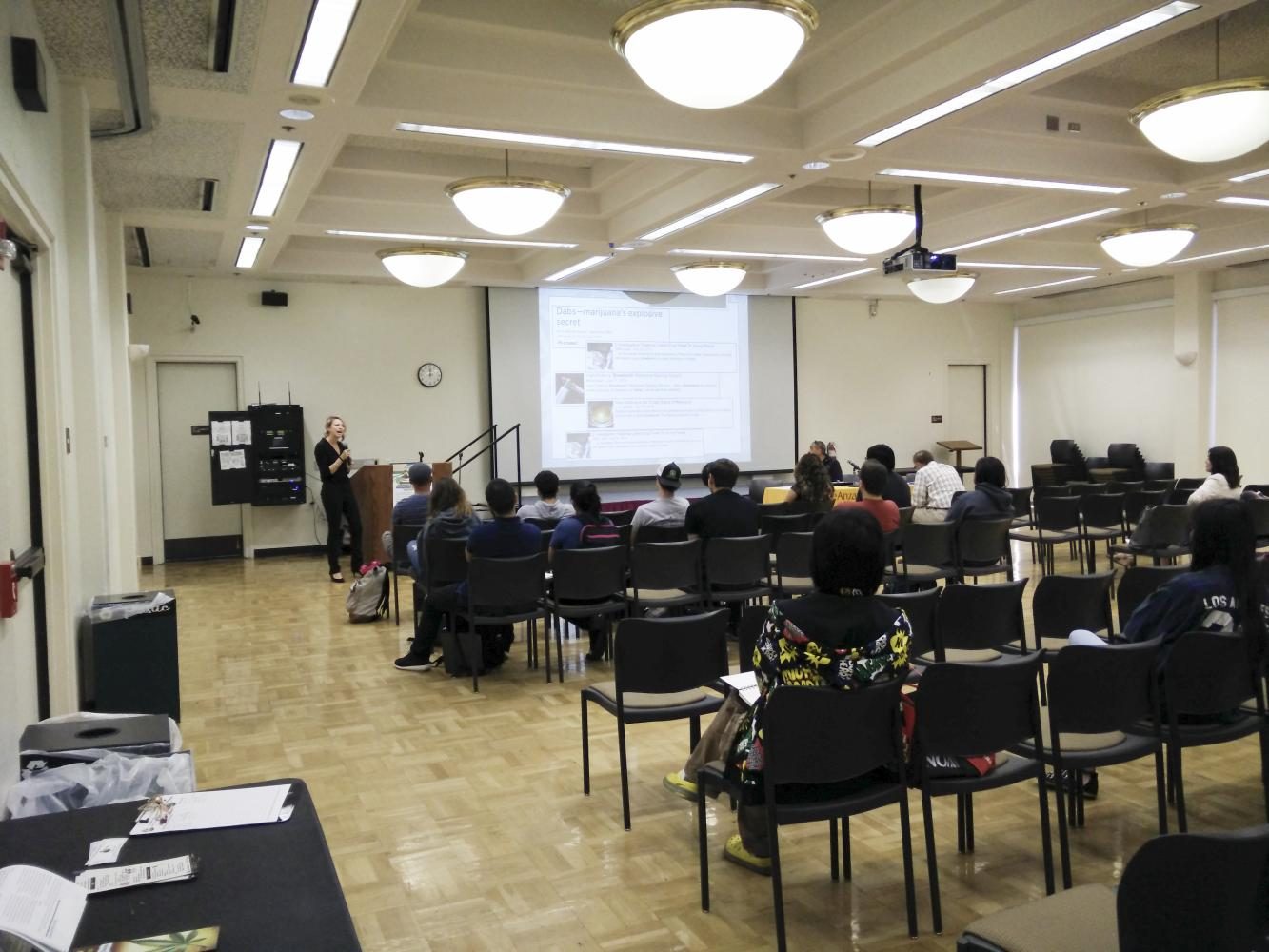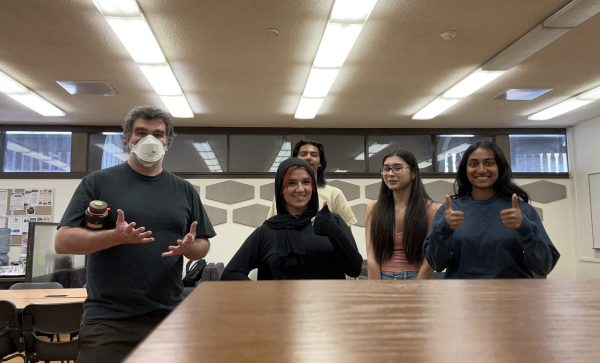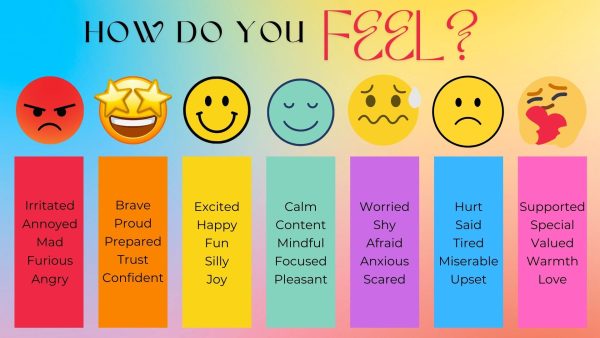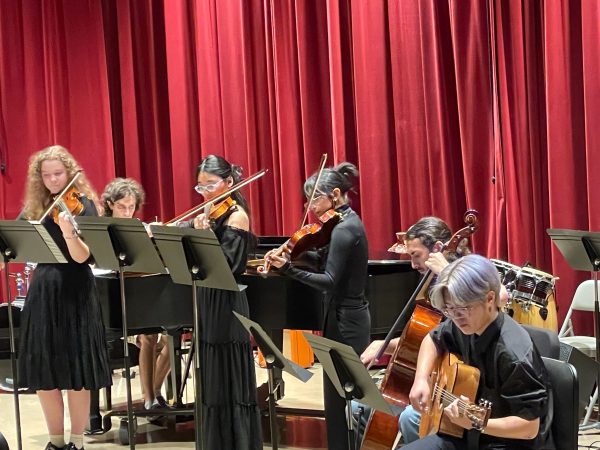Students learn about dangers of marijuana
Dr. Mallory Loflin explains some of the dangers of using cannabis.
Judicial Affairs Officer John Cognetta and Foothill-De Anza Police Assistant Chief Danny Acosta on Monday, May 15, warned students about the consequences of smoking marijuana on campus. Possessing or smoking marijuana within 1,000 feet of campus is illegal, Cognetta said.
Dr. Mallory Loflin, a guest speaker from Stanford University School of Medicine, explained different medical dangers of using different types of cannabis, but said the biggest risk of all when using cannabis is that it is illegal under federal law.
Loflin said that unless you are getting your pot from a dispensary, it will be a different variety and mixture every time.
“We know there’s all kinds of contaminants, especially in things that you’re not buying at dispensaries,” Loflin said. “If you’re buying it from your buddy, it’s filled with mold, spores, bacteria, and all kinds of nasty things that you probably don’t want to be ingesting.”
“If you’re 21, it’s probably safer if you grew your own marijuana, so you know what’s in it,” Acosta said.
Acosta said that California’s pot laws intend for people to use it within their home as a recreational drug, but that does not allow for usage at school. Since De Anza College receives federal funding, Acosta said the campus police are required to follow federal law that currently classifies it as a Schedule I drug, meaning it is illegal to manufacture, distribute, dispense or possess.
Cognetta said that even students with medical marijuana cards are not allowed to smoke or possess on campus.
Cognetta said he would meet with students so he can help them. He said he will try “to give you some help if you need it, and show you we have resources on campus.”
Students found with pot on campus will receive a warning letter at first offense, but could possibly go before a student hearing board, Cognetta said.
“The hearing board then decides your fate, and it could be anything from a simple warning to suspension for multiple quarters to expulsion, Cognetta said. “If it’s expulsion, that’s expulsion for life.”
“It’s a serious matter, we take it seriously. I hope I don’t see you,” Cognetta said.









